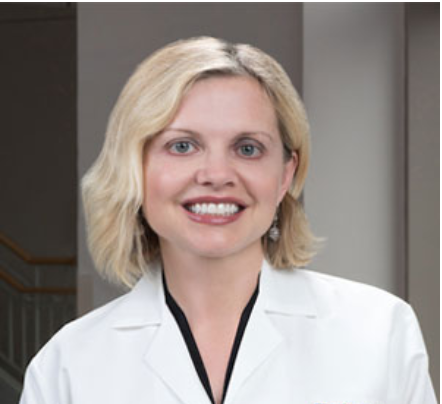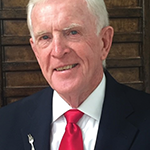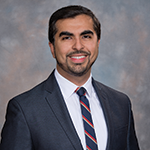The Science Supports Vaccination

Dr. Arabelovic
“Based on the data up until now, the vaccine is of great benefit to protect against COVID-19,” says Senada Arabelovic, DO, Brigham and Women’s Hospital, Boston. “The vaccine has shown to be effective and safe.”

Mr. Richardson
Bob Richardson, PT, FAPTA, agrees. “I believe science supports the positive effects of vaccination,” he says. Mr. Richardson is a practicing physical therapist at Maria Parham Medical Center, a Duke Lifepoint hospital, located in Henderson, N.C. He says a high percentage of his patients are seniors and the hospital is a rural facility. “In this area, I see very few patients and friends who refuse vaccination,” he says.
“I do recommend to my patients that they take the vaccine,” says Mr. Richardson, “and I share with them that I have done so, and I explain that the side effects have proved to be minimal.
“I have always believed in vaccinations, for example, polio. I took the first generation of Dr. [Jonas] Salk’s polio vaccination and, subsequently, influenza vaccines.”
Protect Your Family, Too
“Getting vaccinated yourself may also protect people around you,” says Dr. Arabelovic.
That’s an aspect Sean Fahey, MD, a rheumatologist in practice at Piedmont Healthcare, Mooresville, N.C., emphasizes to his patients: “I point out the benefit of vaccination beyond the individual receiving the vaccine—to other patients, family members and society. We are moving to a new normal.
“I recommend all patients get vaccinated. I typically present the balance between risk and benefit of the choices as a way to frame the discussion. We know the risk of COVID is variable, but there is potential long-term morbidity, as well as a low, but real, chance of death, especially in patients with multiple risk factors. The risk associated with vaccination is lower than the risk of COVID-19.
“I have received my two doses of mRNA vaccine. My choice was driven by several factors: putting my money where my mouth is, setting a good example for my office staff and patients, and protecting my family—including my octogenarian parents who live with me.”
Target Your Conversation

Dr. Ursani
“I am recommending all my patients get the vaccine—except for those who have had a prior, severe anaphylactic response to a vaccination or those patients who have previously developed a neurologic condition, such as Guillain-Barré syndrome or transverse myelitis post vaccination,” says Mohammad A. Ursani, MD, RhMSUS. “Further, I have a long discussion on the risks vs. benefits in patients who are currently pregnant or breastfeeding, and make sure to emphasize the data in this population suggests the vaccine is safe for the fetus or child.”
Dr. Ursani is a private practice rheumatologist in The Woodlands, Texas, and serves as an adjunct faculty member for the University of Texas, Houston, Internal Medicine Residency Program. He also serves as a volunteer for the ACR and is an ambassador for the Young Physicians Organization for the Harris County Medical Society.
In broaching the topic with his vaccine-hesitant patients, Dr. Ursani says, “I attempt to understand why individuals are hesitant to receive the vaccine and address their questions and/or misconceptions directly. I attempt to demystify the misinformation that is often quoted by providing sound sources with statistical data. I review the benefits of getting vaccinated vs. the risk of not getting it.
“From what I have learned,” he continues, “most people who are initially hesitant, once provided with sound, unbiased data with confidence, are more likely to be at ease with receiving the vaccine. If the individual still refuses, I am sure to bring it up at their next clinic visit after providing sources for them to read over and contemplate.”
Dr. Ursani was vaccinated as soon as it became available for healthcare personnel in his area. “I have seen firsthand how severe COVID-19 infection can be, even in individuals who may not have any comorbidities or risk factors. I have reviewed the efficacy and safety data in the vaccine trials and have no doubt that it is beneficial for me and my family.
“As a physician, I believe in science, and I hope to act as a role model and influence my community members and patients to do the same.”



